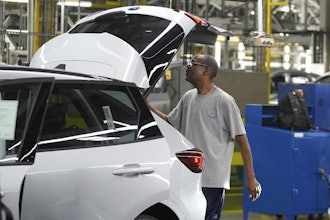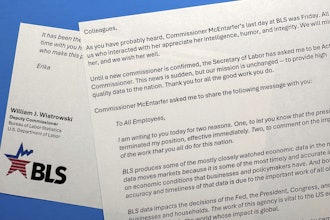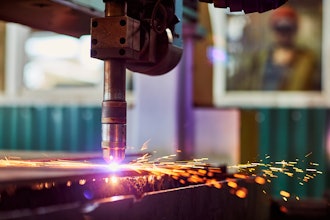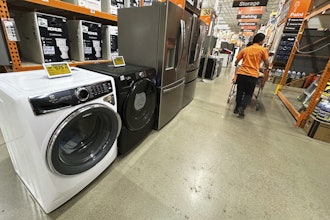It's been assumed across the industrial distribution market — and the general industrial manufacturing market — that industrial vending is only going to grow in usage.
Here at Industrial Distribution, we poll our audience about this every year in our annual Survey of Distributor Operations (Part 1, Part 2, Part 3), asking our readers if they currently install/maintain vending machines at customer locations. Our 2014 survey showed that 24.6 percent of respondents install/maintain vending machines. That figure bumped up to 29.9 percent in 2015, dipped to 27.4 percent in 2016 and jumped to 33.3 percent in 2017. While sure, one-third is still relatively low as a whole, this does show gradually increased usage. I don’t think anyone would deny that VMI is becoming more widespread each year.
This was clearly evident in a new report published in November by market research and consulting company Grand View Research. The firm says the global market for industrial vending devices was valued at $716.6 million in 2016, and is expected to soar to $1.43 billion by 2025.
Once only available to large distributors and suppliers with considerable budgets, the increasing affordability of industrial vending machines has spurred continuous growth in installations among small and medium-sized businesses looking to optimize their inventory operations, and ability to offer VMI as a service.
"The industry is expected to gain traction owing to the growing adoption of these products by Small and Medium Enterprises," the report states. "The availability of these products on rental basis has enabled SMEs to purchase them at a minimal cost. Thus, countries in developing regions such as Asia Pacific are expected to foster the industry growth over the forecast period."
Besides their dropping costs, industrial vending machines growing list of capabilities makes them ever-more attractive. Most of today's machines are Internet-enabled, which allows them to provide real-time data on inventory levels, usage and check-in/check-out reports and an overall increase in inventory management. Those real-time alerts also eliminate the need for manual bin counting, which has long taken up considerable hours of distribution salespeople's time having to visit customers and count inventory levels.
"Vending machines help in maintaining the record of inventory usage by tracking the time and identification details of the user," the report says. "Moreover, they improve the company’s productivity by reducing the walk-around time of the employees, thereby increasing employee productivity. These products also enable the reduction of material usage, which in turn leads to a decrease in the company’s expenses.
"These products lower the freight and stock outage costs, thereby enabling companies to prevent constant inventory replenishment and save the expenses incurred on repeated inventory purchases. The machines can be optimized as per the production of the company to ensure the availability of the right tools and spare parts."
Other key insights from the report:
- The coil vending machine segment is expected to emerge as the fastest-growing segment by 2025, with a compound annual growth rate (CAGR) of 9.0 percent over the forecast period.
- The personal protective equipment segment is expected to reach a value of $537.4 million by 2025, growing at a CAGR of 9.2 percent over the next eight years. The report says increasing regulations regarding employee safety are expected to stimulate the demand for PPE equipment.
Vending has been a key business segment for many prominent industrial distributors, including Fastenal, Grainger, MSC Industrial Supply that have each developed their own machines, while many other distributors use or market machines made by popular suppliers such as AutoCrib, Apex Supply Chain Technologies, CribMaster, 1Sourcevend and Brammer, among others.
In Fastenal's 2017 third quarter period alone, it signed 4,771 industrial vending machines, and the company had 69,508 machines installed as of Sept. 30 — up 14.3 percent year-over-year.
"Sales through our vending machines continued to grow at a double-digit pace in the third quarter of 2017, primarily due to the increase in the installed base," Fastenal said in its Q3 fiscal report.






















